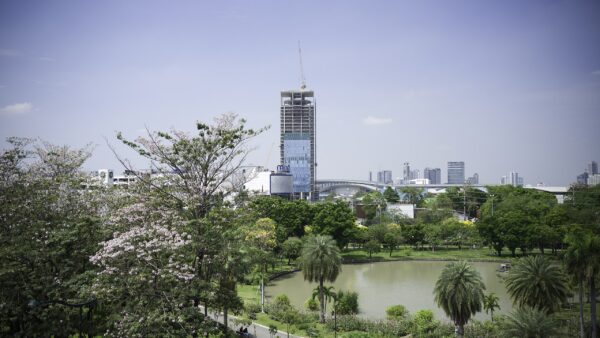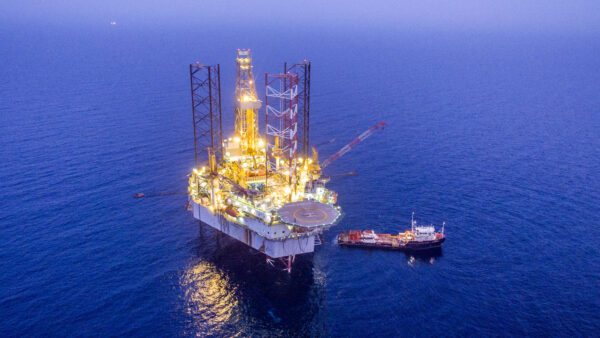The plan to build a $75bn (£50bn) high-speed rail link between London and the north of England lacks a convincing cost-benefit case, according to a new report by the Economic Affairs Committee of the UK parliament’s House of Lords.
London is likely to be the main beneficiary from HS2. Investment in improving rail links in the North of England might deliver much greater economic benefit at a fraction of the cost– Lord Hollick, chairman of the House of Lord’s Economic Affairs Committee
It will be “one of the most expensive infrastructure projects ever undertaken in the UK but the Government have not yet made a convincing case for why it is necessary,” said Lord Hollick, chairman of the committee.Â
The Coalition government has justified the proposed scheme, called High-Speed 2, or HS2, by saying it answers two pressing needs – the need to increase rail capacity and the need to rebalance the UK economy by promoting growth in the north.Â
“We have not seen the evidence that [HS2] is the best way to deliver either,” Hollick said today. Â
Crowded, or not?Â
The plan to build a high-speed line from London north to Birmingham, and then two lines from Birmingham, one to Manchester and other to Leeds, was conceived by the last Labour government and has been adopted by the present Coalition.Â
A bill to enable work to begin on the London-to-Birmingham phase passed in parliament in November 2013. A select committee of the House of Commons is now hearing petitions from groups opposed to the line. Â
The overcrowding issue pertains to the UK’s West Coast Main Line. Running from London to Scotland, it is one of Europe’s busiest rail routes. But the Lords’ report concluded that overcrowding on this line was largely a problem on commuter trains and on long-distance services on Friday nights and “some weekends”. Â
“The government has not carried out a proper assessment of whether alternative ways of increasing capacity are more cost-effective than HS2,” Hollick said.Â
Nor has the economic case been made, the report found. “In terms of rebalancing, London is likely to be the main beneficiary from HS2. Investment in improving rail links in the North of England might deliver much greater economic benefit at a fraction of the cost.” Â
Show us the numbersÂ
The Lords also accused the government of not being transparent with its business case because it has kept current passenger statistics a secret on grounds of commercial sensitivity. Â
“The plausibility of the Government’s claim that there are current long distance capacity constraints and also its forecast of future passenger demand are difficult to assess without full access to current railway usage,” Hollick said. Â
“The investment of £50bn of public money demands nothing less than full transparency.”Â
Christian Wolmar, the rail expert and candidate for Mayor of London, told GCR: “I think they’ve raised all the concerns that should have been raised in 2009 – why is it a 400kmh railway? Why hasn’t there been proper modelling of the alternatives? Why don’t we know how much it will cost if we stop the scheme at Old Oak Common instead of Paddington. There are 2,000 people working on this thing, and yet it’s plunging forward without a proper assessment of its basic facets.”
A Department for Transport spokesperson told the BBC that the case for HS2 was “crystal clear” and claimed it would have a “transformational effect”. “It is a vital part of the government’s long-term economic plan, strongly supported by Northern and Midland cities, alongside our plans for better east-west rail links confirmed in the Northern Transport Strategy last week. Â
Shadow transport secretary Michael Dugher said the opposition Labour party supported HS2. However, he added: “It’s vital that ministers win public confidence for this important investment and ensure that the economic benefits are felt as widely as possible. We have said there will be no blank cheque for the project under Labour.” Â
Eight biggest citiesÂ
Rhian Kelly, director for business environment for the Confederation of British Industry, said a modern railway was needed to deal with lack of capacity on the West Coast Mainline. She told the BBC: “HS2 will better connect eight of our 10 biggest cities, boosting local economies along and beyond the route together with complementary road and rail investment. It’s vital we avoid any further delays.”Â
The main alternative proposal for increasing capacity on the west coast route is a scheme called 51M. This was put forward by an alliance of 19 local authorities, who chose the name to reflect the £51m that they say HS2 will cost each parliamentary constituency in the UK. They are proposing, instead, a spend of £2.6bn on small targeted schemes to upgrade bottlenecks in the line.Â
Photograph: HS1 between London and the Channel Tunnel was the first UK line with a speed of more than 250kmh (Source: Wikimedia Commons)
Comments
Comments are closed.











They are right the current proposals cost more than we can afford and it will never recover the initial outlay.
Those who can not afford the HS2 fares will find the existing trains will not be fast but will become stopping trains taking ages to reach their destination.
The sooner someone sees the light the better the trains are not planned too run until the mid 2020’s and by then the rest of the world will be well advanced with things like maglev and vacuum tubes and other advances already planned and in some cases already under construction.
Meanwhile why are we letting civil engineering contracts to foreign companies who will export the profits and employ many of their own nationals?